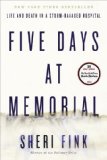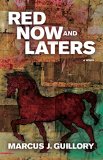Summary | Excerpt | Reviews | Beyond the book | Read-Alikes | Genres & Themes | Author Bio

Acutely wise and deeply honest, it is an astonishing and page-turning debut about the meaning of family, the power of memory, and our ability to forgive.
It was the summer everything changed.
My Sunshine Away unfolds in a Baton Rouge neighborhood best known for cookouts on sweltering summer afternoons, cauldrons of spicy crawfish, and passionate football fandom. But in the summer of 1989, when fifteen-year-old Lindy Simpson - free spirit, track star, and belle of the block - experiences a horrible crime late one evening near her home, it becomes apparent that this idyllic stretch of Southern suburbia has a dark side, too.
In My Sunshine Away, M.O. Walsh brilliantly juxtaposes the enchantment of a charmed childhood with the gripping story of a violent crime, unraveling families, and consuming adolescent love. Acutely wise and deeply honest, it is an astonishing and page-turning debut about the meaning of family, the power of memory, and our ability to forgive.
1
There were four suspects in the rape of Lindy Simpson, a crime that occurred directly on top of the sidewalk of Piney Creek Road, the same sidewalk our parents had once hopefully carved their initials into, years before, as residents of the first street in the Woodland Hills subdivision to have houses on each lot. It was a crime impossible during the daylight, when we neighborhood kids would have been tearing around in go-karts, coloring chalk figures on our driveways, or chasing snakes down into storm gutters. But, at night, the streets of Woodland Hills sat empty and quiet, except for the pleasure of frogs greeting the mosquitoes that rose in squadrons from the swamps behind our properties.
On this particular evening, however, in the dark turn beneath the first busted streetlight in the history of Piney Creek Road, a man, or perhaps a boy, stood holding a long piece of rope. He tied one end of this rope to the broken light pole next to the street and wrapped the other around his ...
As the novel progresses, Walsh manages the tricky act of re-telling scenes from his youth with great clarity and freshness. Interjections from the narrator's adult self have the potential to jar, awkwardly lifting the reader out of the story of his teenage years, but this is never a problem. Instead, Walsh's dual perspective on events becomes a real strength as he increasingly overlays the young man's mistakes and mis-steps with mature reflection. Lindy's past "is unchangeable" but there is a philosophical aspect to the novel and a tenderness expressed towards his younger self and to the other characters that is both moving and thought-provoking. There are times, however, when Walsh's maintenance of tension by exploring the underlying question of who raped Lindy Simpson, feels heavy-handed. Particularly in the latter stages of the book, the reminders that there is still something to be revealed about that night feel artificially placed...continued
Full Review
 (660 words)
(660 words)
(Reviewed by Kate Braithwaite).
"The day I fell in love with Lindy Simpson was January 28, 1986. This was also the day the Space Shuttle Challenger exploded, and seven courageous astronauts died. I was eleven years old and in fifth grade."
Although not a historical novel, M.O. Walsh's My Sunshine Away evokes a real sense of the recent past when the narrator, fourteen years old in the main action of the novel, recalls the Challenger disaster of 1986. This was a time when it was "exotic" to watch cable television at school and Walsh's attention to detail – the televisions with plastic knobs and buttons beneath the screens and President Ronald Reagan fiddling with a paperclip before addressing the nation later that day – will doubtless evoke strong personal ...

If you liked My Sunshine Away, try these:

by Sheri Fink
Published 2016
Pulitzer Prize winner Sheri Fink's landmark investigation of patient deaths at a New Orleans hospital ravaged by Hurricane Katrina and suspense-filled portrayal of the quest for truth and justice.

by Marcus J. Guillory
Published 2015
In this impressive debut Marcus J. Guillory brilliantly weaves together the many obstacles of a young man growing into adulthood, the realities of urban life, the history of Louisiana Creole culture, the glory of the black cowboy, and the role of religion in shaping lives.




We should have a great fewer disputes in the world if words were taken for what they are
Click Here to find out who said this, as well as discovering other famous literary quotes!